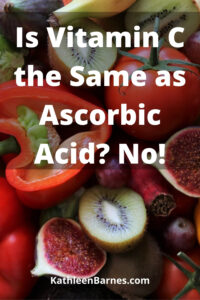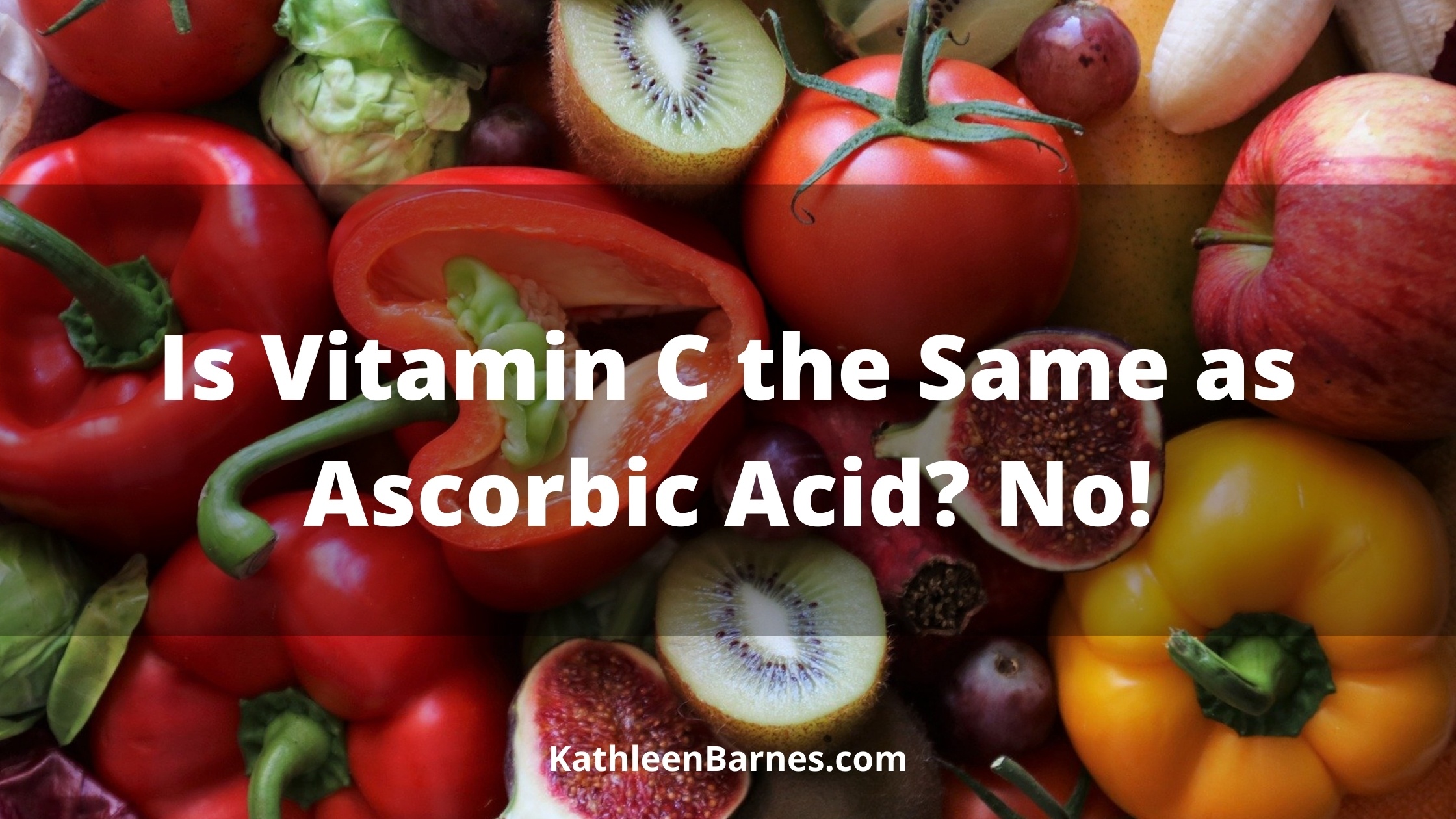In a word, “No.” I’ll say it again, “NO!”
I recently got this question from a reader, probably because we are in the midst of cold and flu season and many people are heeding the knee jerk advice to “take more Vitamin C” to treat and prevent colds.
There’s a little bit of sense there—but only a little bit. Ascorbic acid is only one of a complex variety of elements that make up the vitamin C molecule. Alone, it may have some mild antibiotic effects, so if you have any kind of bacterial infection, large amounts of cheap ascorbic acid might offer some relief. However, colds are almost always viral, so high dose ascorbic acid is unlikely to do anything but give you diarrhea.
Taken on a long-term basis, ascorbic acid has been found to cause atherosclerosis (hardening of the arteries), cause the breakdown of collagen in the arteries, kidney stones and more health problems, according to a 2012 study from the Women’s Heart Center at Cedars-Sinai Heart Institute.
Ascorbic acid is an element of vitamin C. All vitamins are extremely complex molecules that contain a large numbers of factors, some of which science hasn’t even identified. They work in concert, to produce health benefits that are far beyond those produced by one element, known as an isolate. And these elements are inseparable, meaning their benefits can only be realized when taken as part of a whole food molecule. There is a synergistic effect of the multiple components of vitamin C, including a number of inseparable co-factors, such as rutin, bio-flavonoids (vitamin p), factor k, factor j, factor p, ascorbinogen, protein chaperones, and various enzymes like tyrosinase, which together in their entirety constitute the whole food complex.
Isolates like ascorbic acid are cheaply produced. Ascorbic acid is 10 times more acidic than naturally buffered vitamin C. It can cause stomach upset, leech minerals from bones and promote the formation of kidney stones. [SOURCE][SOURCE][SOURCE]
Very sadly, many so-called “scientific” sources equate vitamin C and ascorbic acid, basic biochemistry proves this is incorrect. All pre-med students must take biochemistry, yet most doctors and other health care professionals seem to have forgotten their basic biochemistry. Don’t get me started on this, but trust me, the Vitamin Lie is only one of many myths that most doctors seem to have subscribed to with zealotry. (Note: This is detailed in the book I wrote with Dr. Robert Thompson: The Calcium Lie 2: What Your Doctor Still Doesn’t Know.)
The first research on vitamin C and its ability to prevent scurvy came in the early 18th century when British doctor discovered that eating citrus fruits cured the scurvy (a vitamin C deficiency disease) so prevalent among sailors who spent months at sea and got very little fresh food. Hence, the name “limeys” for those sailors who were given a lime a day to prevent scurvy.
Back in the 1930’s, ascorbic acid was isolated out of little red peppers. Dr. Albert Szent-Gyorgyi won a Nobel Prize for his discovery of vitamin C and his work to isolate ascorbic acid. What he also found, which has mostly been ignored until recently, was that ascorbic acid was far more biologically available and active while it was still in the red pepper.
That’s why eating an orange or other vitamin C-rich citrus fruits, peppers, tomatoes, strawberries, kiwi fruits and much more) every day is almost always preferable to swallowing a few ascorbic acid tablets.
Vitamin C is especially important in the winter to protect against colds and flu, but also for many vital body functions including growth maintenance and repair of tissues, including skin, blood vessels, bones and teeth. Most importantly, vitamin C is a powerful antioxidant that counteracts the destructive effects of free radical oxygen molecules that lead to the chronic disease of aging, including cancer, heart disease and arthritis.
Vitamin C is also essential for wound healing. If you know an older person who has permanent bruising on hands and arms, that is a form of scurvy, although modern medicine rarely recognizes that, either.
If you want more protection, especially in winter, I strongly suggest you find a whole food vitamin C product that is made from organically grown, vine-ripened fruits and vegetables. Anything else won’t do you any good and might just make matters worse.
A final cautionary note: You’ve probably already twigged on the idea the isolates are a problem in other vitamins. You would be correct! Vitamin A is not beta carotene alone, nor is vitamin E alpha-tocopherol alone.
It’s always preferable to get your nutrition from food, but it’s not always possible. When you’re looking for a supplement, keep this article in mind and avoid wasting your money on products that rely on cheap isolates in a misguided attempt to replace a whole vitamin molecule. They won’t help and they might hurt.








Great advice, Kathleen! Thanks for the info. I wish I had known with more certainty that intravenous Vitamin C can cure cancer too. Stay safe (and watch that vaccine 😉
I know. I only recently learned this. Maybe it would have helped Rosemary…